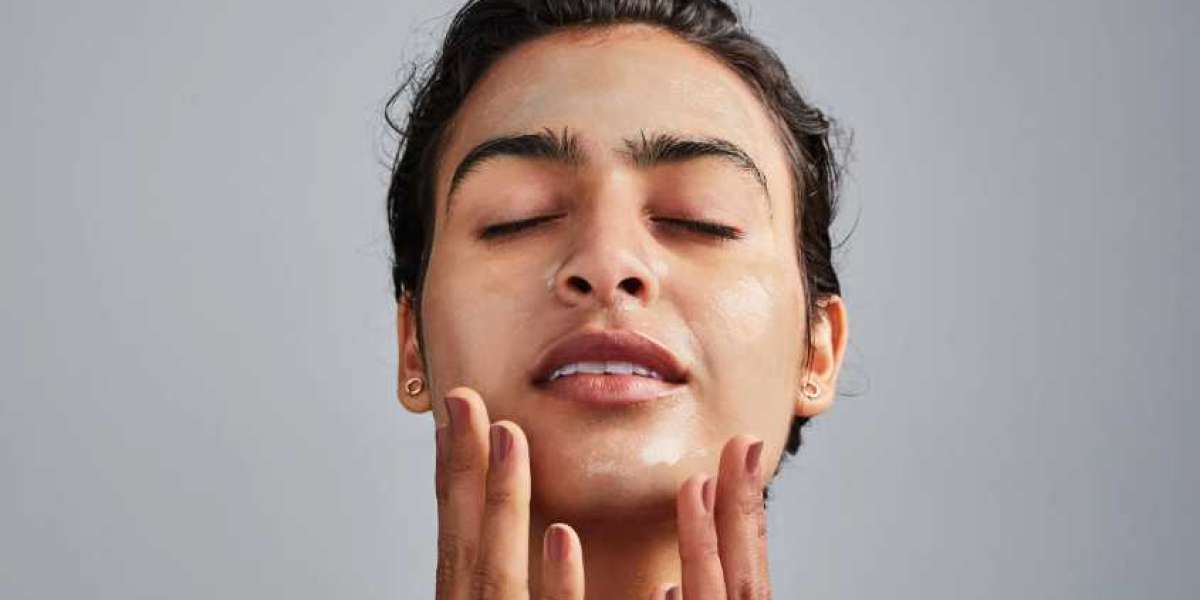For girls with acne-prone skin, a gentle, natural approach can often make a positive difference. Here are some natural skincare tips to help calm, clear, and nourish acne-prone skin:
1. Gentle Cleansing with Honey
- Why: Honey has natural antibacterial and soothing properties that help reduce acne-causing bacteria and calm inflamed skin.
- How: Apply raw honey to damp skin, gently massage, and rinse with lukewarm water. Do this in the morning or evening instead of a harsh cleanser.
2. Aloe Vera for Calming and Healing
- Why: Aloe vera soothes inflammation, reduces redness, and promotes healing, which is ideal for acne-prone skin.
- How: Apply a thin layer of pure aloe vera gel directly to your skin after cleansing, either as a moisturizer or as a calming mask.
3. Green Tea Toner for Oil Control
- Why: Green tea has antioxidant and anti-inflammatory properties that help reduce oil production and fight bacteria.
- How: Brew a cup of green tea, let it cool, and use it as a toner by applying it with a cotton pad. Store in the fridge and use within a week.
4. Spot Treatment with Tea Tree Oil
- Why: Tea tree oil is known for its antibacterial and anti-inflammatory properties, making it a natural option to target breakouts.
- How: Dilute tea tree oil with a carrier oil (like jojoba oil) and apply to pimples with a cotton swab. Avoid using undiluted tea tree oil directly on the skin, as it can be harsh.
5. Exfoliate Gently with Oats
- Why: Oats are a gentle exfoliator, and they contain anti-inflammatory compounds that can soothe acne-prone skin.
- How: Mix ground oats with water to make a paste and gently massage onto damp skin. Use this natural exfoliator once a week to avoid over-exfoliation.
6. Moisturize with Jojoba Oil
- Why: Jojoba oil closely resembles the skin’s natural oils, which can help balance sebum production without clogging pores.
- How: Apply a few drops to clean skin as a moisturizer or mix a few drops with your regular moisturizer.
7. Apple Cider Vinegar Toner for Balancing pH
- Why: Diluted apple cider vinegar helps balance the skin’s pH and has mild antibacterial properties that may reduce acne.
- How: Mix one part apple cider vinegar with three parts water, apply with a cotton pad, and leave on for 10–15 minutes before rinsing. Test on a small patch of skin first, as it may be too strong for sensitive skin.
8. Use a Honey and Turmeric Mask
- Why: Turmeric is anti-inflammatory and helps brighten skin, while honey’s antibacterial properties help fight acne.
- How: Mix a teaspoon of raw honey with a pinch of turmeric and apply to clean skin. Leave it on for 10–15 minutes, then rinse with lukewarm water.
9. Hydrate with Cucumber and Aloe Mist
- Why: Cucumber is hydrating and soothing, which is beneficial for acne-prone skin, especially in warm weather.
- How: Blend cucumber with aloe vera gel, strain the mixture, and use the liquid as a refreshing face mist. Keep in the fridge and use within a few days.
10. Lifestyle Tips: Clean Diet and Hydration
- Why: Foods rich in antioxidants, like fruits and vegetables, help improve skin health. Staying hydrated helps keep the skin clear and flushes out toxins.
- How: Incorporate anti-inflammatory foods like leafy greens, berries, and fatty fish into your diet. Avoid sugary or processed foods that can trigger breakouts, and aim for 8 glasses of water daily.
Bonus Tips for Natural Acne Prevention
- Avoid Touching Your Face: Our hands carry bacteria that can transfer to our skin and worsen breakouts.
- Change Pillowcases Regularly: Oils and bacteria build up on pillowcases, so washing them often can help keep skin clear.
- Get Enough Sleep: Adequate rest helps regulate hormones and reduce stress, which can both contribute to acne.
These natural remedies can help balance and soothe acne-prone skin. Always test any new ingredient on a small patch of skin before full application, and remember that consistency is key to seeing results.
https://trendybeauti.ae/








